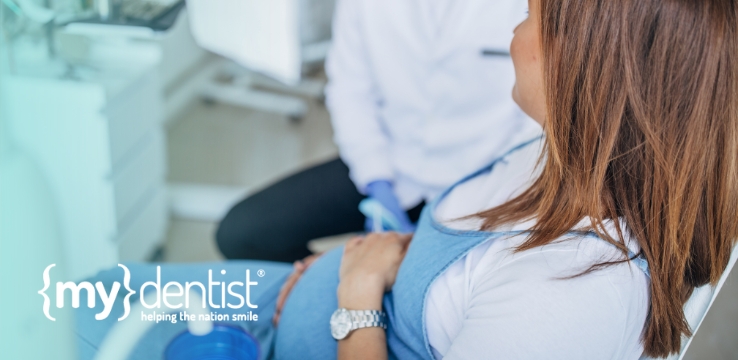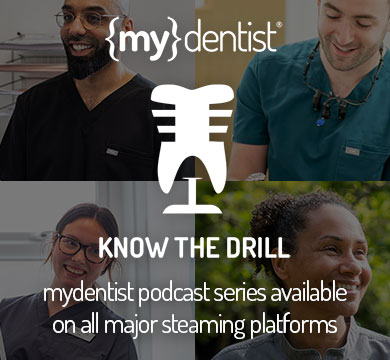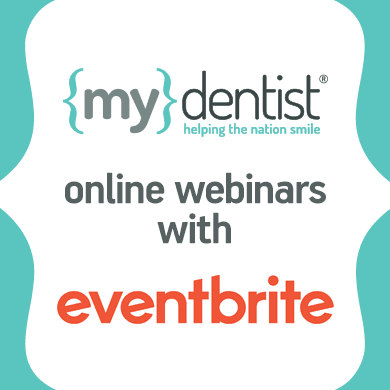Blog
World Health Day 2025 - Dental advice for pregnant women
Apr 7, 2025, 12:33 PM

World Health Day is celebrated annually on 7th April, each year we take the opportunity to raise awareness and increase education on a different theme. The theme for World Health Day 2025 is healthy beginnings, hopeful futures and will be a yearlong campaign focusing on maternal and newborn health.
Dental advice for pregnant women
For International Women’s Day 2025, we celebrated the people working at mydentist and our patients who identify as women with a series of blogs that explored topics relevant to dentistry in relation to women’s health. These blogs not only celebrated the achievements of women at mydentist but also provided advice on maintaining your oral health in key stages of life, such as childhood and pregnancy.
We wanted to share, once more, the valuable insight of one of the many women at mydentist contributing her expertise to addressing oral health concerns across the UK, Dr Nyree Whitley, our Chief Clinical Officer here at mydentist.
Looking after your dental health when you’re pregnant
Looking after your dental health when you are pregnant is incredibly important. The body goes through many different changes during pregnancy, with fluctuations in your hormones being one of the main changes.
“Hormone changes attributed to events such as pregnancy can lead to gingivitis, a common gum infection. It’s perfectly treatable if found early, but if it is left untreated, then gingivitis can lead to periodontal disease, which can cause further complications such as tooth loss.” Nyree commented, when asked about the adverse effects of hormonal fluctuations on our dental health.
What dental concerns may affect pregnant women?
During pregnancy, increases in your hormonal levels can affect how your body reacts to plaque. This can lead to swollen, sore or bleeding gums, commonly referred to as gingivitis, or to the more serious form of gum disease known as periodontitis.
Although gingivitis in pregnant people is not usually severe, with lasting damage to the to the bone, soft tissue and gum surrounding and supporting a tooth being rare, it’s vital you look after your oral health during pregnancy.
Recognising the signs of gum disease
During pregnancy, changes like swollen or bleeding gums are common, but they should not be ignored. Other symptoms to watch for include:
-
Pain when chewing
-
Bad breath
-
Receding gums
-
Loose teeth
If any of these arise, it is important to visit your dental professional as soon as possible for treatment.
When is the best time for a pregnant woman to receive periodontal treatment?
The BSP and EDP advise that even if you’re not presenting with any signs or symptoms of a dental condition, you should still seek a consultation with your dentist, dental therapist or dental hygienist as soon as possible so you can take appropriate preventive measures to preserve your oral health. During your appointment, you can ask about the appropriate plaque removal measures and tools you should use during your pregnancy to maintain your teeth.
Safe dental treatment options for pregnant women
If you are diagnosed with gingivitis or periodontitis, it's important not worry. Treatment for gum disease is generally safe during pregnancy and with treatment; gum disease can be managed effectively.
The risks of delaying treatment for gum disease while you are pregnant far outweigh any potential issues caused by the treatment itself. However, treatments like deep scaling (cleaning below the gum line) are usually best avoided in the first trimester. However, it can be safely performed during the second trimester.
Having dental X-rays and anaesthesia while pregnant
For pregnant women, dental X-rays and local anaesthesia are generally safe and do not pose any additional risks to either the mother or baby. However, it is always a good idea to inform your dentist about your pregnancy so they are aware of your condition and can tailor your treatment.
Painkillers and antibiotics for pregnant patients
Common painkillers and antibiotics used during periodontal treatments are typically safe for pregnant women. However, certain medications, like tetracyclines and metronidazole, should be avoided. Inform your clinician if you are pregnant so they can ensure you are receiving the best care possible.
What to do if you're concerned about your dental health as a pregnant woman
When asked about the best approach to dental care for pregnant women, Nyree commented: “Regular check-ups and a proactive approach to oral hygiene can help prevent minor issues from becoming major health concerns.”
If you have concerns about your dental health and you are pregnant, we recommend contacting your practice to ask for advice or arrange an appointment with your dentist. You may want to consider this if you notice any changes in your gums, teeth or even lips.
If you're new to mydentist and looking for a practice, find your local mydentist practice today. Or, browse our comprehensive treatment offering or find more information about mydentist at www.mydentist.co.uk.

Events
At mydentist we have a busy schedule of online and face-to-face CPD designed to support clinicians and dental nurses in developing their careers. We partner with industry experts to deliver training in a range of diverse topics. Colleagues who currently work at mydentist can register via the mydentist academy. The online webinars available for external clinicians can be accessed here:
